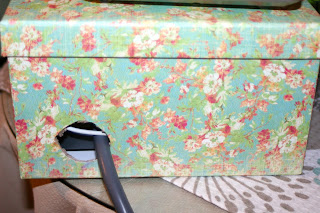This morning I received private messages from a couple of friends asking me to join yet another game for breast cancer awareness. It seems I commented on a silly status they'd posted and got "caught" in the game.
The statuses, however, are cloaked in secrecy and have little to do with raising awareness as much as it just makes me want to stop commenting on other people's posts. No one knows there's an underlying message, or that it is meant to raise awareness, unless they comment on the post and get
My honest opinion is that these diseases, ailments, disabilities, and afflictions shouldn't be relegated to impudent Facebook statuses. Real people suffer and are disfigured for life because of cancer, and many lose their lives. There are few of us who haven't been affected by cancer in some way. I have several friends who are both survivors or were casualties of this horrible disease. They are the human souls in this struggle, and their memories should not be consigned to some frivolous status that claims you've won $900 in the lottery.
If you want to raise awareness, stop posting statuses with such disrespectful levity and post your outright support on your status instead. Donate to organizations that research and treat the disease. Volunteer at the chemotherapy center. Drive patients to and from their treatment. Hold their hand. And lend a real hand of friendship. But stop the games.
I am posting this for those I've known who've lost their battle: Carla, Kelly, Amy, Allison, Edna, Janice, Cyndi, Addie, Cathy, Ron, and Barb. I am writing this post for those who are fighting their battles now: Barri, Helen, and Kay. I write for those who've conquered once, but live in dread that it will return: Suzette and Marta and Cindy and Nance. And I write for those who struggle with diseases and conditions known and unknown, visible and invisible, shared and private. Each one.
It's not a game.







